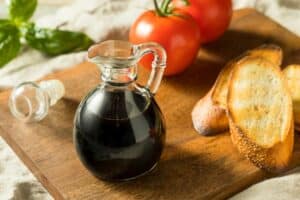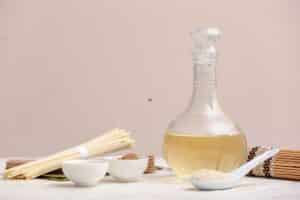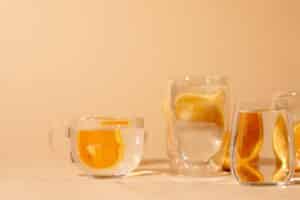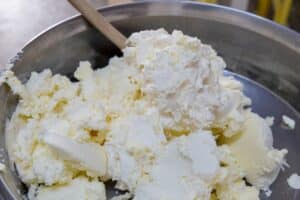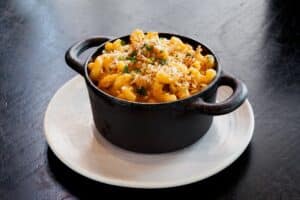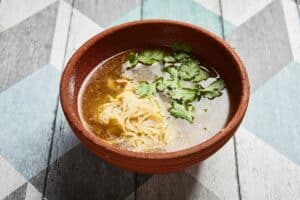Rosewater is exactly what it sounds like: water infused with rose petals so that it takes on the flavor and aroma of the flower. If you find yourself working with a recipe that calls for rose water and there’s none available, don’t worry—there are plenty of easy substitutes for the delicious flavor.
There’s a good chance you’ve interacted with rosewater in a medical or skincare context. Rosewater is great for soothing skin, treating sore throats, and even preventing infections.
But this floral water also has a delicious flavor that makes it a great ingredient in baking and cooking.
Rose water is a common ingredient in Middle Eastern and Indian cuisine. Its floral flavor is quite strong and works best when used moderately in sweet dishes.
In addition to sweet dishes, there are tea or coffee beverages, cocktails, and even some savory meals that use rosewater.
While you may feel hesitant to experiment with rose water, it’s worth it to take the plunge and be inspired by its unique flavor. And if you don’t have any rosewater on hand, you can still enjoy your recipe by using a rose water alternative, many of which are commonplace in most kitchens.
Read on to learn all about how rose water is used in cooking and how to choose the best substitute for your recipe.
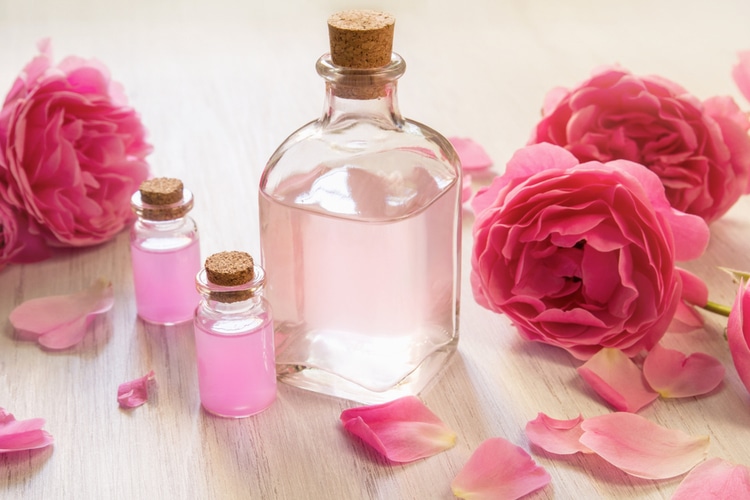
5 Recommended Rose Water Substitutes
Rose water is a popular enough ingredient to be found at the grocery store, but you still have options if you can’t find it or don’t have time to go to the store.
One solution is to make your own rose water at home. Making rosewater involves simmering rose petals in water, and the whole process can take up to an hour.
If you don’t have the kind of time, there are many convenient alternatives to rose water that you can use instead.
Here are some of the best ingredients that can substitute for rose water.
Rose Essence
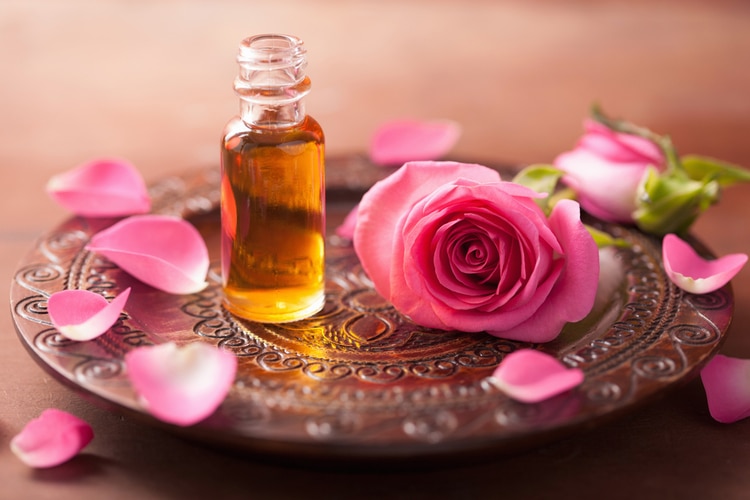
Rose essence is probably the most obvious substitute for rose water. This flavoring is a concentrated version of the natural rose flavor and even mimics the smell of roses—this is especially helpful for cooking since taste and smell are closely connected.
Rose essence or rose extract is a great alternative to rose water for baking, cooking, and cocktails. You can either buy rose essence from the store—try to find a natural one for a more authentic flavor—or make your own at home.
If you choose to use rose essence as an alternative to rose water, you will need to be cautious. Rose essence is a concentrated flavor, and therefore it is much stronger than rosewater. Too much rose essence will leave your dish tasting artificial and even soapy.
To prevent an overpowering rose flavor when using rose essence, aim for about a quarter of whatever amount of rosewater that the recipe calls for. Lowering the rose essence amount should keep the rose flavor subtle and pleasing.
Rose essence is a reliable alternative to rose water for cooking and baking recipes. That being said, it’s important to remember that by using rose essence instead of rose water you are decreasing the amount of liquid in the dish.
This factor is especially relevant for baking, which requires a precise balance of dry and liquid ingredients.
Orange Flower Water
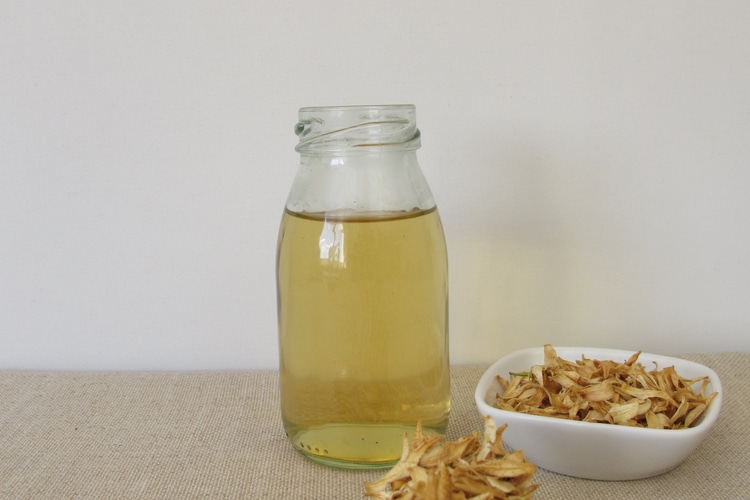
Orange flower water is another type of floral water popular in Middle Eastern and Indian cuisine. The flavor is different from roses—much more fruity with citrus notes—but it will still add the sweet, aromatic flavor that the recipe requires.
This flower water is quite similar to rosewater. But unlike rosewater, it is made by crushing orange flowers into a paste and then mixing with the water, as opposed to full rose petals soaking in the water.
As a result, orange flower water can have a slightly stronger flavor than its rose water counterpart.
Since orange flower water is a popular ingredient in the same regions where rosewater is common, it will most likely work well with the other flavors in the recipe that you are following.
Orange flower water is a little complicated to make on your own, but it should be available at your local grocery store. If your grocery store doesn’t have it, you can look for it at specialty Middle Eastern, Indian, or African markets. You can also order it online.
Conveniently, orange flower water has the same consistency and flavor intensity as rose water. Therefore you can have a one-to-one ratio when substituting for rose water in a recipe.
Orange flower water brings all of the floral and sweet flavors that rosewater has, not to mention a citrus flavor that some people adore. This rose water alternative works well for baking, as it won’t change the amount of liquid called for in the recipe calls.
The orange flower water flavor is also quite popular for dishes that have meat.
Lemon Juice
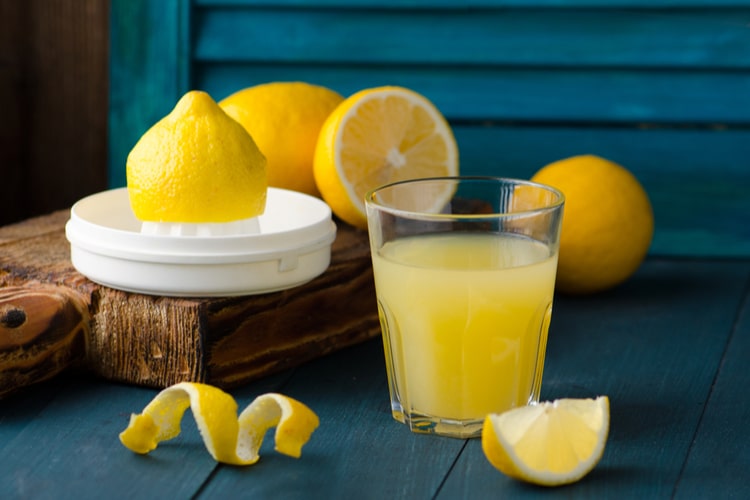
While lemon juice may not be the most obvious substitute for rose water, it can be quite useful when you don’t have any other floral water or flavoring extracts on hand.
Lemon juice’s citrus flavor can be a reasonable alternative to the floral and fruity notes of rosewater. Lemon juice is often already present in a well-stocked kitchen and extremely prevalent at grocery stores, making it a convenient substitute.
It is also a viable option if you don’t think you’ll be using rose water that often in your cooking and you don’t feel like going out of your way trying to find it.
Of course, lemon juice is a lot more bitter, sour, and acidic than the rose water it is trying to replace. When using lemon juice as a rose water alternative, be sure to add a little bit of sugar to create some of the sweetness the rosewater would have provided.
Balancing the flavors of the lemon juice and the sugar can be tricky, so keep mixing small portions of juice and sugar until it tastes how you want it, and then add it to the rest of the ingredients.
If you choose to replace rose water with lemon juice, you will probably need a smaller amount of lemon juice than the amount of rose water called for since lemon juice has such a strong taste.
The lemon juice and sugar should add a subtle fruity flavor with a bit of sweetness, but not enough to overpower the other flavors in the dish.
Lemon juice is utilized best as a rose water substitute for cooking recipes as opposed to baking. The lemon juice will have a slightly different texture than rose water and a higher level of acidity, factors that can negatively affect the baking chemistry.
Since using lemon juice as a substitute is all about experimenting and adding it for taste, it’s a better fit for cooking recipes.
Pandan
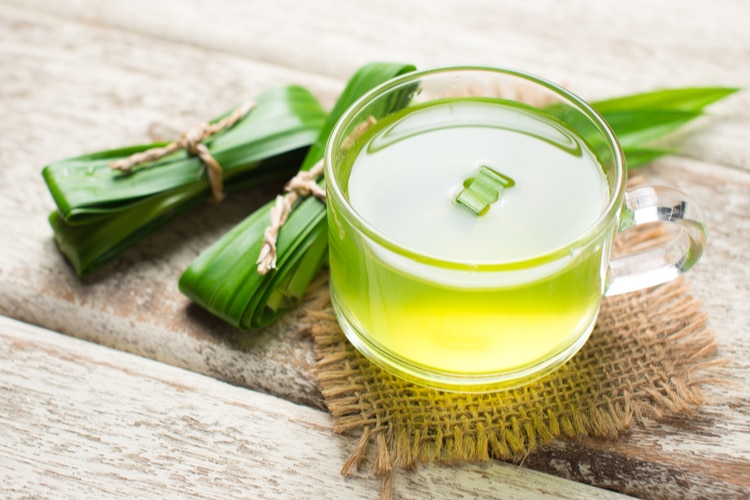
If you’re familiar with Southeast Asian cuisine, you may already know that pandan is a unique and delicious floral flavor that is woefully overlooked in western cooking. Pandan is an herbal plant with a fragrant smell and vanilla flavor.
When used as an alternative to rose water, some small chopped pandan leaves will add plenty of the floral and sweet notes that you would expect from rosewater. The smell is slightly different from roses.
The green color of pandan may change the visual appearance of the dish, but the flavor will work perfectly.
If you substitute rose water with pandan, you will need to increase the amount used. Unlike other rose water alternatives, pandan has a less intense flavor than rosewater.
To determine the appropriate amount of pandan to use, start with about a quarter more than what the recipe calls for and gradually add more until the pandan tastes appropriately in balance with the other flavors.
Since pandan is a solid—think basil or another herbal seasoning—it’s probably not the best rose water substitute for baking. However, it works great when sprinkled over a meat dish or used in other cooking recipes.
It’s also delicious when added to a dessert. If you have a specific purpose in mind for pandan, it can also be found as a powder or liquid extract.
Vanilla Extract
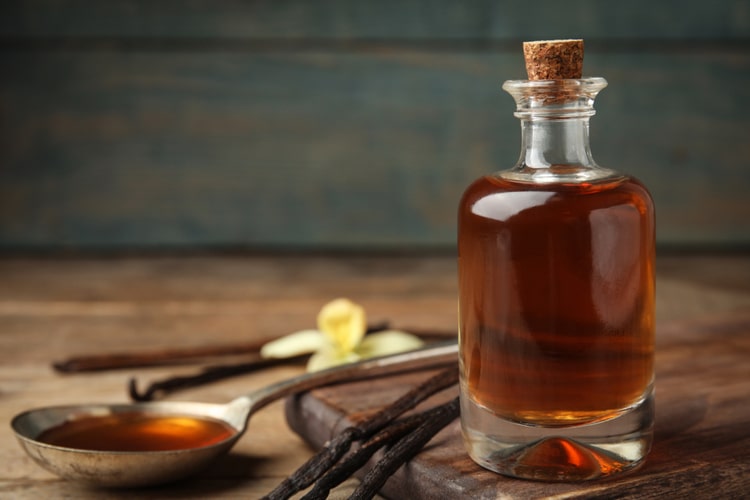
Vanilla extract is another easy substitute for rose water. The aromatic and sweet flavors of vanilla extract serve a similar function to rosewater, meaning that replacing rose water with vanilla extract won’t dramatically change the flavor of your dish.
When using vanilla extract as a rose water alternative, remember that vanilla extract is sweeter and more intense than rose water. To achieve the same flavor, you will need to use significantly less vanilla extract than rosewater.
If you use too much vanilla extract, your dish will be overpowered by a sweet and alcoholic flavor, which is not the subtle aromatic effect you would want when choosing a replacement for rose water.
Vanilla extract is an especially good rose water substitute for baking recipes. It likely won’t interfere with the chemistry of the recipe, and since vanilla extract is so prevalent in baking, you can already feel confident that it will go well with the other ingredients.

